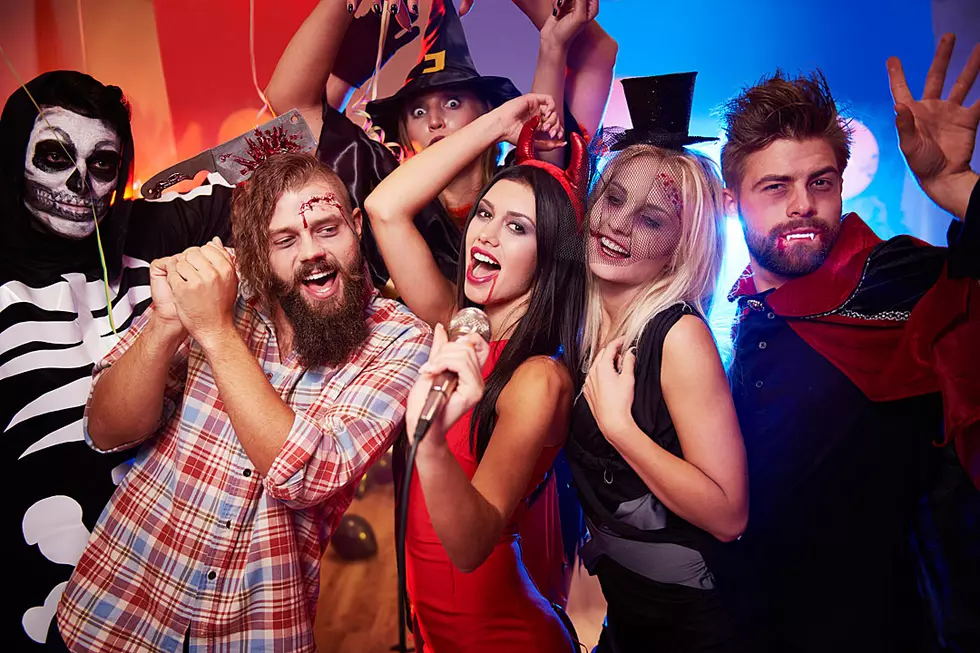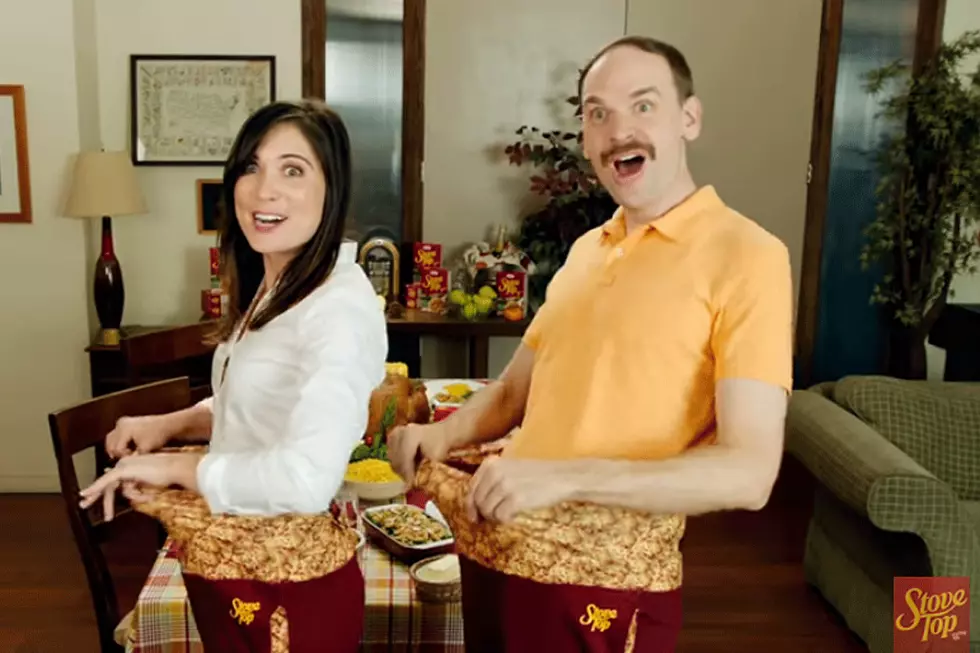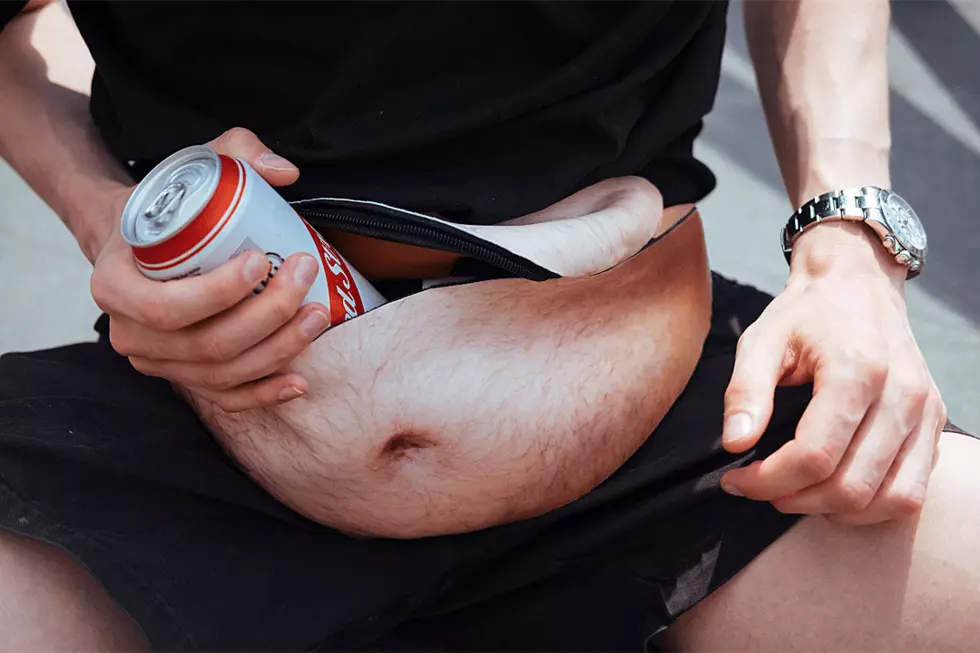![Scott Aukerman talks ‘Comedy Bang Bang,’ ‘Earwolf’ and Explains How a TV Works [INTERVIEW]](http://townsquare.media/site/390/files/2012/06/ScottA.gif?w=980&q=75)
Scott Aukerman talks ‘Comedy Bang Bang,’ ‘Earwolf’ and Explains How a TV Works [INTERVIEW]
Ask anybody who knows a thing or two about comedy just who Scott Aukerman is and surely the answer given would be flooded all sorts of praise. Ever since starting out as a writer on HBO’s 'Mr. Show' back in the ‘90s, Scott has gone on to have a career in show business, comedy in particular, that most would kill for.
The fact that he’s extremely funny and talented is only part of the reason for Scott’s successes over the years. It seems that much of it has to do with his immense appreciation of the experiences and teachings he’s been lucky enough to encounter. When talking about his time on 'Mr. Show', for which he is forever grateful, the funnyman gets candid in saying that the lessons he learned there are ones he still carries with him today. With each new project he attempts to emulate the process presented to him by Bob Odenkirk and David Cross.
Moving from an award winning writer/performer to a very successful podcaster, Scott was approached by IFC about doing a show of his own. The network offered the comedian a half-hour program, which premieres on June 8 at 10PM.
What’s it called? Well, of course, Comedy Bang Bang.
Thank you very much for doing this.
It is literally my pleasure.
We're big fans of yours and also of the podcast so this is a treat.
Oh awesome. Thank you.
'Comedy Bang Bang' premieres on IFC on June 8th. I’ve watched all of the videos available. It is incredibly funny and very unique. How would you describe the show?
Hmm, whom am I talking to when I describe it? Somebody who has no idea what anything is? [laughs] Do I have to describe to this person what a television is?
No, no. Let’s assume this person has IFC.
Okay, so we can start with a little bit of knowledge on their part. They have IFC so they are savvy television viewers.
Would you say it’s a video version of your podcast?
No, I wouldn’t say that. I think that would scare even the most devoted television view off, having to watch a podcast. I think I decided to be inspired by the podcast. I took the basic framework of what it is. It’s [the show] a talk show hosted by me where I interview celebrities and comedians and I also interview comedians doing fake characters and we all interact, but I also expanded it and put a lot of comedy pieces in it. The podcast is more long form improv. This show, basically I would describe it to somebody as a combination between a real talk show and a fake talk show.
Who are your first guests?
On the very first show I have Zach Galifianakis, Will Forte, Andy Daly, Tom Lennon, Gillian Jacobs, and then of course there’s myself and Reggie Watts, my bandleader/sidekick. That’s just the tip of the iceberg for that show. Every show I try to pack as much comedy and as many funny people into it as possible. While other shows take an hour to give you Gerard Butler and Serena Williams, if you watch my show you’re going to get super funny people, it’s only going to take half the time and you’ll get probably 450% of the laughs that you get on other talk shows.
It seems very conversational. Is any of it improvised?
It’s a really interesting style. There’s a great deal of improv done on the show. What I didn’t want to do was do a totally scripted talk show. I really have fallen in love with the format that we started doing on Between Two Ferns, improvisational conversation. Anytime I’m in the studio talking to anyone, for the most part, it’s all improv. But then we expand it by doing scripted comedy pieces around that. It’s a really unique combination of scripted stuff and improv but it doesn’t feel like a scripted show. It’s a lot like if you’re watching Between Two Ferns.
How did IFC come into it? Did they contact you?
They actually did. A year previously they contacted me. They’re all fans of the podcast and they were looking for interstitials to put around recently acquired shows that they had gotten out of syndication like Freaks and Geeks and the Larry Sanders Show. So they asked me to host those. What I didn’t know that they were a testing to see if I was incredibly ugly. Then they took a look at the tape, studied them a lot and decided that I am a little bit ugly.
You’re decently looking enough for television?
Yes, I was branded okay for TV. But after I completed all of those they offered me a chance to expand it to a half hour show.
Those little interviews were Comedy Death Ray?
Yes. Those were like the part of Comedy Bang Bang where I’m talking to guests. It’s real conversations with people. Now we just expand the show in order to incorporate really bizarre stuff into it.
How is it working with IFC in relation to another network?
IFC is really great. I’ve worked with a few different networks and each one has their own style of development. The more well known the network is the more everyone gets protective of their success. They take fewer risks. FOX used to take so many risks and then they got successful with The Simpsons and The X-Files. They just started to say well that’s what works. Then they decided to do those over and over and over and over and over. The great thing about IFC is that they’re relatively young. They’re a new network. They took a chance on this show and have been really incredible to work with. They trust me and love the shows that are coming out. They give me a lot of latitude to experiment with something that a lot of other networks would ask me to change.
Do they give you any notes?
Oh sure. Anytime someone’s invested a bunch of money into a product there’s going to be stuff they want to talk about. If anything is really important to them I listen to it and try to accommodate them and if anything’s important to me they do the same. It’s been a great experience.
When you first started you were a performer?
When I first started in comedy I started as a performer, yes. It was kind of scripted bits in stand up comedy format. Before that I was writing plays and scripts on spec.
You’ve done so much since then. Was performing the only goal at the time?
At the time it was just a weird thing my friend asked me to do. I started out as a musical theater actor and had a friend who moved down here [Los Angeles] and had comedians as roommates. She hated my scripts that I was writing. I was really interested in writing dramatic comedies at the time and she said, “You’re such a funny guy naturally. Why don’t you try comedy? I’m hanging out with all of these comedians and I think you would do really well.” So it was just a weird thing that she asked me to do. I never thought I could do it to be frank. I didn’t think anyone would think I was very funny. She kind of stuck her neck out with her friends and asked them to put me into the show. I just wanted to try it and once I did I really loved it.
Obviously that brought you to 'Mr. Show'. It’s been said constantly but so many people that worked on that show have gone on to have fantastic careers. It’s evident that Bob [Odenkirk] and Dave [Cross] had an incredible eye for talent. What did you take away from that experience that helped you move on in your career? That you kept with you?
Anytime I do a show where I have a writer’s room I think about them a lot. I had a very different idea of what being a comedy writer was from what they taught me. All I really knew about being a comedy writer was what I heard about on Saturday Night Live. I read all of those books where you stay up all night and hang out all day. I remember my first week at Mr. Show in the middle of the day I took off for an hour because I planned on being there all night. I thought it didn’t matter that I took off for an hour and went to the comic book store [laughs]. Bob asked me, “Why did you take off?” and I said, “Oh, aren’t we just here all night?” He said, “No we’re working here from 10 to 5.” He came from SNL where staying all night was an insane thing to do. Why would he want to do it on his own show? Bob and Dave set up such an incredible process as a writer. I was very intimidated not only by them but by the thought that I would have to sit there and critique someone’s work or speak up on a room or pitch jokes. I was very intimidated by that whole experience. I think it was because I was reading about other comedy programs.
Bob and Dave are so supportive and set up something that I try to emulate in every show that I have done since, which is a really supportive system where the writers are encouraged to talk a lot, encouraged to make things better. There’s no judgment in the room. The goal is not to have someone pitch and idea and make fun of them if it’s not exactly right. The goal is to figure out why they think something is funny and develop that into something really great. It was a fantastic experience and it’s something I definitely think about every time I’m in a writer’s room.
I saw an interview with you and Bob. In it you mentioned that if a sketch didn’t seem write they never threw it out. It was finding something within it that is funny.
It’s an interesting process. Instead of saying ‘that sucks’ you say ‘why did you think of that idea?’ Because maybe they’re execution isn’t exactly right but they still saw something that was funny to them. You want to figure out what that is. Then you talk about the thought process of it. You don’t just say, “Whatever. When you figure it out let me know.” You spend hours talking about it and writing drafts upon drafts. The process with them [Bob + Dave] is don’t shut something down; try to figure out what’s funny about any idea.
What made you decide to start the 'Comedy Bang Bang' podcast?
It was something that was just offered to me. I had been doing characters on my friend’s morning show on a radio station and he, without talking to me, told the radio station that they should give me my own show. They offered it to me and I just thought it’d be a fun thing to do. That’s really it. I never thought anything more than ‘oh that’d be fun’.
From that it turns out you’re a very good interviewer. Was that something you naturally felt comfortable doing?
Thank you. I had been on Jimmy Pardo’s Never Not Funny podcast and really enjoyed it. He gave me a certain type of confidence that I could be relatively interesting while holding a conversation. It definitely is an interesting skillset to sort of take the backseat and let someone else shine while still trying to be funny yourself. The master at it is David Letterman and before him Johnny Carson. I don’t think I’m doing that necessarily on this show. I’m doing less talking and more bits. Larry King had a very interesting style of interviewing. He would try to get the question down to the least amount of words. His point of view was that people weren’t tuning in to listen to Larry King talk; they were tuning in to listen to the other person. My show isn’t like that. It’s definitely more of a bit-heavy show. But I do enjoy interviewing people. It would be interesting if my show had gone down the route of just being an interview show but thankfully I think we found something a little more different.
So how did the Earwolf network come about?
Jeff Ulrich found out about my show and approached me about managing it. Then, off conversation, he threw out that the ambitious thing to do was to start a whole podcast network. I think I’m someone who’s always attracted to the ambitious thing to do so my eyes kind of lit up. It seemed like a cool idea. We started it to provide a place for comedians who aren’t very technology-minded to start their own podcast.
It seems that every so often comedy gets into the boom era where it blossoms. Do you feel that’s happening because of podcasts, technology and places such as UCB?
I will say that I think comedy in LA, live comedy, is in a great place because of the UCB Theater. Before UCB you used to have to rent spaces. We did a show with Jimmy Pardo where we spent like $1,500 or $2,000 renting a theater for three nights just to put on a free show that we were trying to get people to see. Back in ‘95 we would have to rent every theater. The UCB theater, It’s a godsend. That’s sort of what we were trying to do with Earwolf. If you had to buy all of that equipment and had to host all of the files it would just make your brain hurt. So yes, I do think comedy is in a great place, but then again I felt it was when we started Comedy Death Ray ten years ago. I just think that more people across the country are now able to hear people because of the innovations and technologies that podcasts have taken advantage of.
Last question…
SA: Make it a good one! What do you got? Come on, Kyle.
Oh boy… June 8th. How are you going to spend the night of the pilot airing?
Oh my gosh. Well, I didn’t even think about it. I think I’m going to spend it alone, the same way that I was born. We’re all born alone, we all die alone, and we all watch the first episode of our television alone. There you go.
More From GuySpeed









